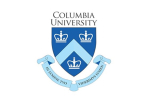48. Bender JM, Li F, Martelly S, Byrt E, Rouzier V, Leo M, Tobin N, Pannaraj PS, Adisetiyo H, Rollie A, Santiskulvong C, Wang S, Autran
C, Bode L, Fitzgerald D, Kuhn L, Aldrovandi GM (2016) Maternal HIV Infection Influences the Microbiome of HIV-Uninfected Infants. Science
Translational Medicine 8(349):349ra100 [Research Article, PubMed]
43. Wahl A, Baker C, Spagnuolo RA, Stamper L, Fouda G, Permar S, Hinde K, Kuhn L, Bode L, Aldrovandi G, Garcia JV (2015) Breast
milk of HIV-positive mothers has potent and species-specific in vivo HIV inhibitory activity. J Virol 89(21):10868-78 [Research Article, PubMed]
40. Kuhn L, Kim HY, Hsiao L, Nissan C, Kankasa C, Mwiya M, Thea DM, Aldrovandi GM, Bode
L (2015) Oligosaccharide composition of breast milk influences survival of uninfected children born to HIV-infected mothers in Lusaka, Zambia. J
Nutr. 145(1):66-72 [Research Article, PubMed]
32. Chan CS, Kim HT, Autran C, Kim JH, Sinkala M, Kankasa C, Mwiya N, Thea DM, Aldrovandi GM, Kuhn L, Bode
L (2013) Human milk Galectin-3 Binding Protein (Gal3BP) and breastfeeding-associated HIV transmission. Pediatr Infect Dis J.32(12):e473-5
[Research Article, PubMed]
26. Bode L, Kuhn L, Kim HY, Hsiao L, Nissan C, Sinkala M, Kankasa C, Mwiya M, Thea DM, Aldrovandi GM
(2012) Human Milk Oligosaccharide concentration and risk of postnatal transmission of HIV through breastfeeding. Am J Clin Nutr. 96:831-9 [Research
Article, PubMed]






